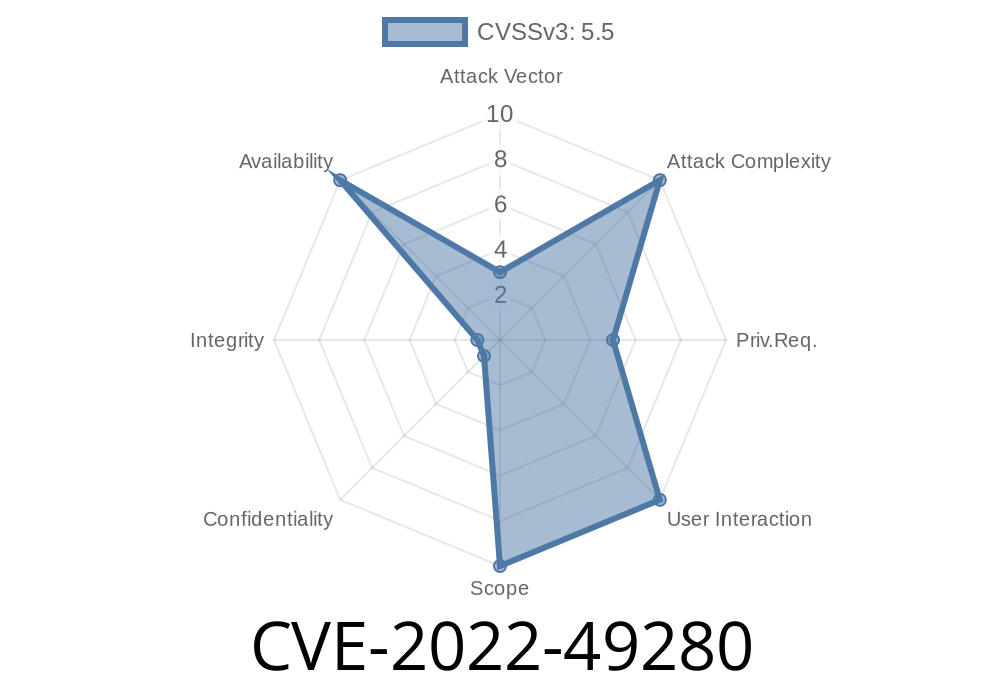In December 2022, the Linux kernel maintainers quietly patched a vulnerability affecting the NFS server code. Tracked as CVE-2022-49280, this flaw could have led to security issues because of an integer underflow within the critical nfssvc_decode_writeargs function. Let me explain what happened, why it mattered, and how it was fixed—with some code for context.
What is NFSD and Why Should You Care?
The Network File System Daemon (NFSD) is the server-side process of NFS, the protocol letting Linux machines share directories over the network. If your organization runs file servers on Linux, there's a good chance you're running NFSD.
A vulnerability in this code can spell trouble. Attackers might exploit bugs to crash servers, leak information, or achieve remote code execution.
The Root Cause: Signedness, Smatch, and an Underflow
The problem started in the function nfssvc_decode_writeargs inside fs/nfsd/nfsxdr.c. When handling a user's write request, this function populated a structure with arguments from the client. One of those arguments, args->len, *should* always be positive.
A static analysis tool called Smatch flagged that code as problematic
fs/nfsd/nfsxdr.c:341 nfssvc_decode_writeargs()
warn: no lower bound on 'args->len'
That means args->len could be negative, but later code might treat it as an unsigned value or use it in a way where negative numbers cause bugs—most dangerously, *underflow*.
Let's see the buggy piece (simplified)
// Problem: 'len' is signed!
int len;
if (len < ) {
// Defensive code, but...
return -EINVAL;
}
// Later use:
copy_from_user(data, user_buf, len);
If, by mistake, len is negative and not properly checked, copy_from_user could interpret it as a huge unsigned value (on a 32-bit system, -1 becomes xFFFFFFFF). At best, this crashes the system. At worst, it's a path for exploitation.
They made the type unsigned.
// Fixed: 'len' is unsigned!
unsigned int len;
// ...later...
copy_from_user(data, user_buf, len);
Now, len cannot be negative, and underflow isn’t possible.
Exploit Details and Impact
Can this be exploited?
If a malicious client crafted a request setting args->len to -1, and the check failed, the kernel could attempt to copy 4GB of data—most likely crashing, possibly exposing kernel memory if bounds checks elsewhere were incomplete.
While no public exploits have surfaced, this class of bug is *dangerous*. NFS is a widely exposed surface—if accessible over the network, anyone can try to trigger the bug.
Fix and References
This vulnerability was fixed by commit 5c6c3eafef54, which changed the structure definition for the write argument length.
Commit message
> NFSD: prevent underflow in nfssvc_decode_writeargs()
>
> Smatch complains: fs/nfsd/nfsxdr.c:341 nfssvc_decode_writeargs() warn: no lower bound on 'args->len'
>
> Change the type to unsigned to prevent this issue.
More details
- Kernel.org Patch Link
- Red Hat CVE Tracker for CVE-2022-49280
- NVD Entry
CVE-2022-49280 was caused by using a signed integer for lengths in NFS write requests.
- The bug was detected by static analysis; the practical risk was an underflow that could lead to server crashes or worse if exploited.
If you run an NFS server, ensure your kernel is updated with this patch!
Stay safe and always keep your servers up to date—sometimes, a single integer can make all the difference.
*If you liked this breakdown or want more security stories demystified, follow for more!*
Timeline
Published on: 02/26/2025 07:01:04 UTC
Last modified on: 04/14/2025 20:09:38 UTC
